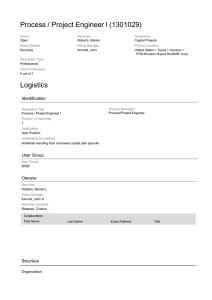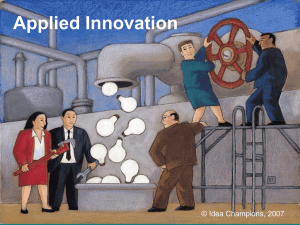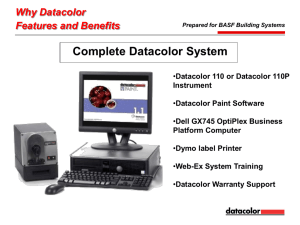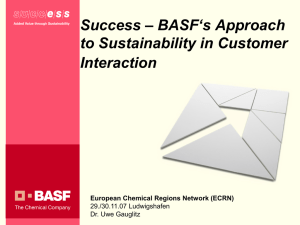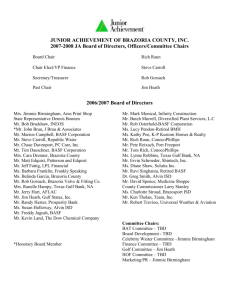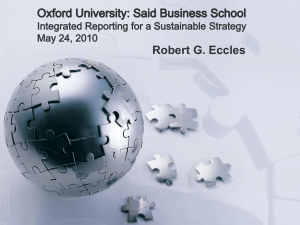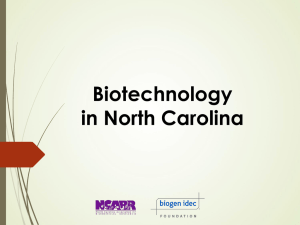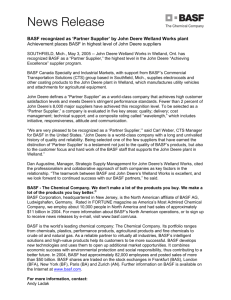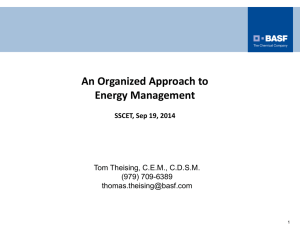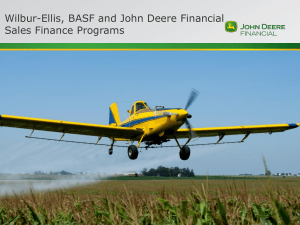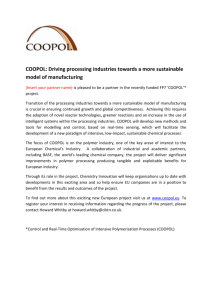BASF: "Give Europe`s farmers access to advanced
advertisement
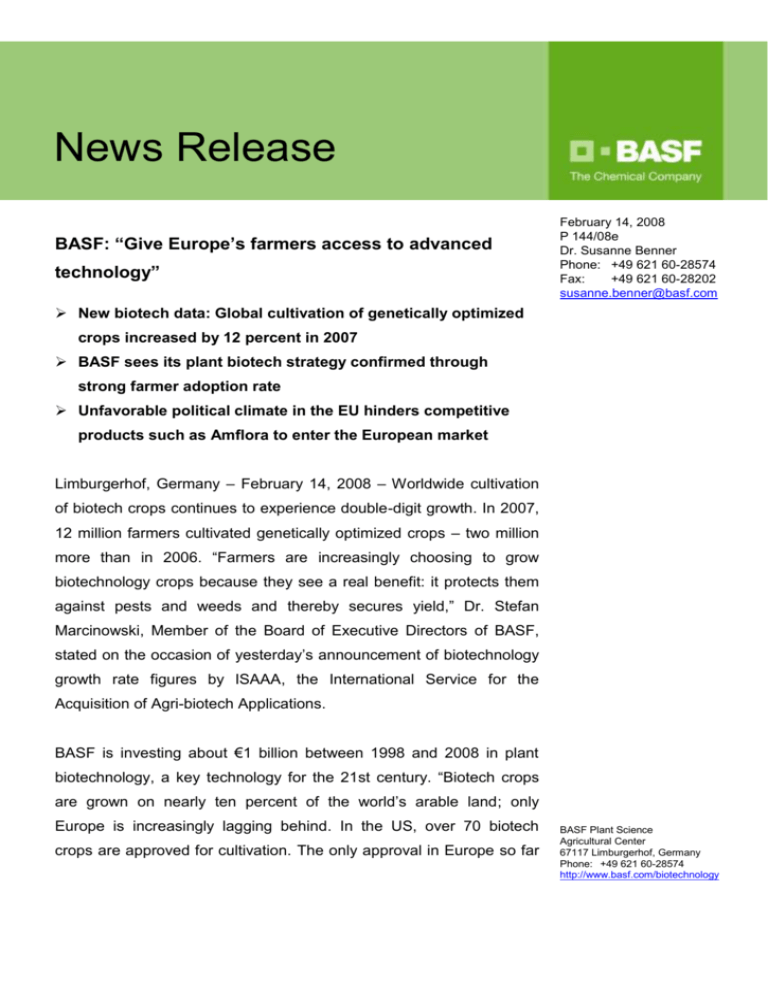
News Release BASF: “Give Europe’s farmers access to advanced L technology” February 14, 2008 P 144/08e Dr. Susanne Benner Phone: +49 621 60-28574 Fax: +49 621 60-28202 susanne.benner@basf.com New biotech data: Global cultivation of genetically optimized crops increased by 12 percent in 2007 BASF sees its plant biotech strategy confirmed through strong farmer adoption rate Unfavorable political climate in the EU hinders competitive products such as Amflora to enter the European market Limburgerhof, Germany – February 14, 2008 – Worldwide cultivation of biotech crops continues to experience double-digit growth. In 2007, 12 million farmers cultivated genetically optimized crops – two million more than in 2006. “Farmers are increasingly choosing to grow biotechnology crops because they see a real benefit: it protects them against pests and weeds and thereby secures yield,” Dr. Stefan Marcinowski, Member of the Board of Executive Directors of BASF, stated on the occasion of yesterday’s announcement of biotechnology growth rate figures by ISAAA, the International Service for the Acquisition of Agri-biotech Applications. BASF is investing about €1 billion between 1998 and 2008 in plant biotechnology, a key technology for the 21st century. “Biotech crops are grown on nearly ten percent of the world’s arable land; only Europe is increasingly lagging behind. In the US, over 70 biotech crops are approved for cultivation. The only approval in Europe so far BASF Plant Science Agricultural Center 67117 Limburgerhof, Germany Phone: +49 621 60-28574 http://www.basf.com/biotechnology Page 2 was granted ten years ago. We want Europe’s politicians to give farmers access to modern technology to remain competitive on the world market,” Marcinowski said. BASF’s genetically optimized starch potato, Amflora, is still expecting EU approval for cultivation. “Amflora was developed to strengthen the European starch industry,” Marcinowski added. “Regrettably, slow and contradictory decision processes as we experience them in the EU rather hinder competitiveness for farmers and industry.” BASF has also applied for approval to use the potato pulp – the remainders of the starch extraction process – as animal feed. A press release and a summary of the annual report on the worldwide cultivation of biotech crops by the International Service for the Acquisition of Agri-biotech Applications (ISAAA) can be found at www.isaaa.org. About Amflora Amflora is a genetically optimized potato, producing pure amylopectin starch, ideal for technical applications. Conventional potatoes produce a mixture of amylopectin and amylose starch. For many technical applications, such as in the paper, textile and adhesives industries, only amylopectin is needed; separating the two starch components is uneconomical. Amflora produces pure amylopectin starch and thus helps to save resources, energy and costs. Moreover: Paper produced with amylopectin starch has a higher gloss and adhesives can be processed for a longer period of time. About BASF Plant Science BASF consolidated its plant biotechnology activities in BASF Plant Science in 1998. Today, about 700 employees are working to optimize crops for more efficient agriculture, renewable raw materials and healthier nutrition for humans and animals. Projects include yield increase in staple crops, higher content of Omega3s in oil crops for preventing cardiovascular diseases, and potatoes with optimized starch composition for industrial use. To find out more about BASF Plant Science, please visit www.basf.com/plantscience. P 144/08e Page 3 About BASF BASF is the world’s leading chemical company: The Chemical Company. Its portfolio ranges from chemicals, plastics, performance products, agricultural products and fine chemicals to crude oil and natural gas. As a reliable partner to virtually all industries, BASF’s high-value products and intelligent system solutions help its customers to be more successful. BASF develops new technologies and uses them to meet the challenges of the future and open up additional market opportunities. It combines economic success with environmental protection and social responsibility, thus contributing to a better future. BASF has approximately 95,000 employees and posted sales of €52.6 billion (approximately $66.1 billion) in 2006. Further information on BASF is available on the Internet at www.basf.com. P 144/08e
